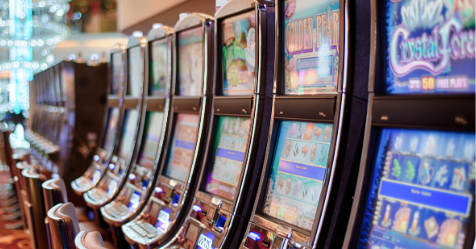November 20, 2019
Casino Gambling May Not Be Winning Jackpot For The Commonwealth
Recent media coverage and debate among state lawmakers shows that Virginia has interest in legalizing casinos. And on Monday, two bills were prefiled for the 2020 legislative session that would do just that. Legal forms of slots-style gambling (although not technically casinos) have already become popular with several gaming franchises opening across the state. While the discussion may focus on initial revenues, legislators should consider who that money will be coming from and other potential costs. As the General Assembly heads into session in January, it’s important to understand what legalizing casino gambling would mean for state revenues, and how it may impact people in Virginia.
According to a report from the Tax Policy Center, state-sanctioned gambling has expanded over the last four decades. Before 1991, there were few commercial casinos outside of Nevada and New Jersey. In 2018, casinos and casino-horse race hybrids (known as racinos) were legal in 25 states. State expansion of gambling options grew significantly in the last decade, likely in order to balance budgets in the wake of the Great Recession.
Legalizing and building casinos can be part of a strategy to stimulate revenue and increase employment in states under economic distress or to pay for new spending programs without having to raise income or sales taxes. But whether the strategy is effective is up for debate. Research has shown that despite its popularity among legislators as being a “budget savior,” revenue from gambling, tobacco, and other “sin taxes” represent a small share of states’ budgets. In a report from the Rockefeller Institute, it was found that gambling revenue represented between 2% and 2.5% of state general revenues, with a few exceptions where states rely on the revenues to a greater degree.
There is little consensus on whether casinos live up to the promise of economic growth. Some studies have found that casinos stimulate the regional economies around them and create jobs, while some found they only moved jobs from one industry to another and didn’t increase employment opportunities overall. In the Tax Policy Center’s analysis of state data on casino and racino tax and fee revenues, it was found that overall growth in revenue has stagnated despite recent expansions. And while some states see initial revenues following expansion, they slow and even reverse in the long run, offering limited potential for states to fund priorities, such as education, over the long term.
The presence of casinos also raises the issue of tax equity. Research has shown that people with low incomes tend to spend a larger share of their income on gambling compared to people with higher incomes, and gambling activities – especially lotteries, which are legal in Virginia – tend to be a regressive source of revenue. States may end up leaning on these taxes in lieu of taxing wealthier individuals. And in Virginia, this would add to our already upside-down tax system.

Gambling in the state can create counterproductive incentives. Taxes on alcohol, cigarettes, and similar products are meant to reduce their consumption. Yet by legalizing gambling, the state is encouraging consumption that could create additional social costs elsewhere, such as gambling addiction and bankruptcy. It is estimated that around 3 million to 4 million Americans have a gambling disorder. There is also evidence that suggests that states that have more residents who visit out-of-state casinos have higher rates of bankruptcy filings.
The economic benefits of casinos are not substantial, and potential harms should be fully vetted before any consideration of legalizing casino gambling in the state. Virginia’s tax structure is already upside down, where households with low and moderate incomes pay a higher share of their incomes toward state and local taxes than the highest-income households. Looking for new revenue sources is necessary to make worthwhile investments, but legalizing casino gambling has been found to have a negative effect on the well-being of people and communities. As legislators prepare to review the issue, they should know that modernizing Virginia’s tax system and raising revenue from other sources in order to build an economy that works for all is well within their reach.
Category:
Budget & Revenue

